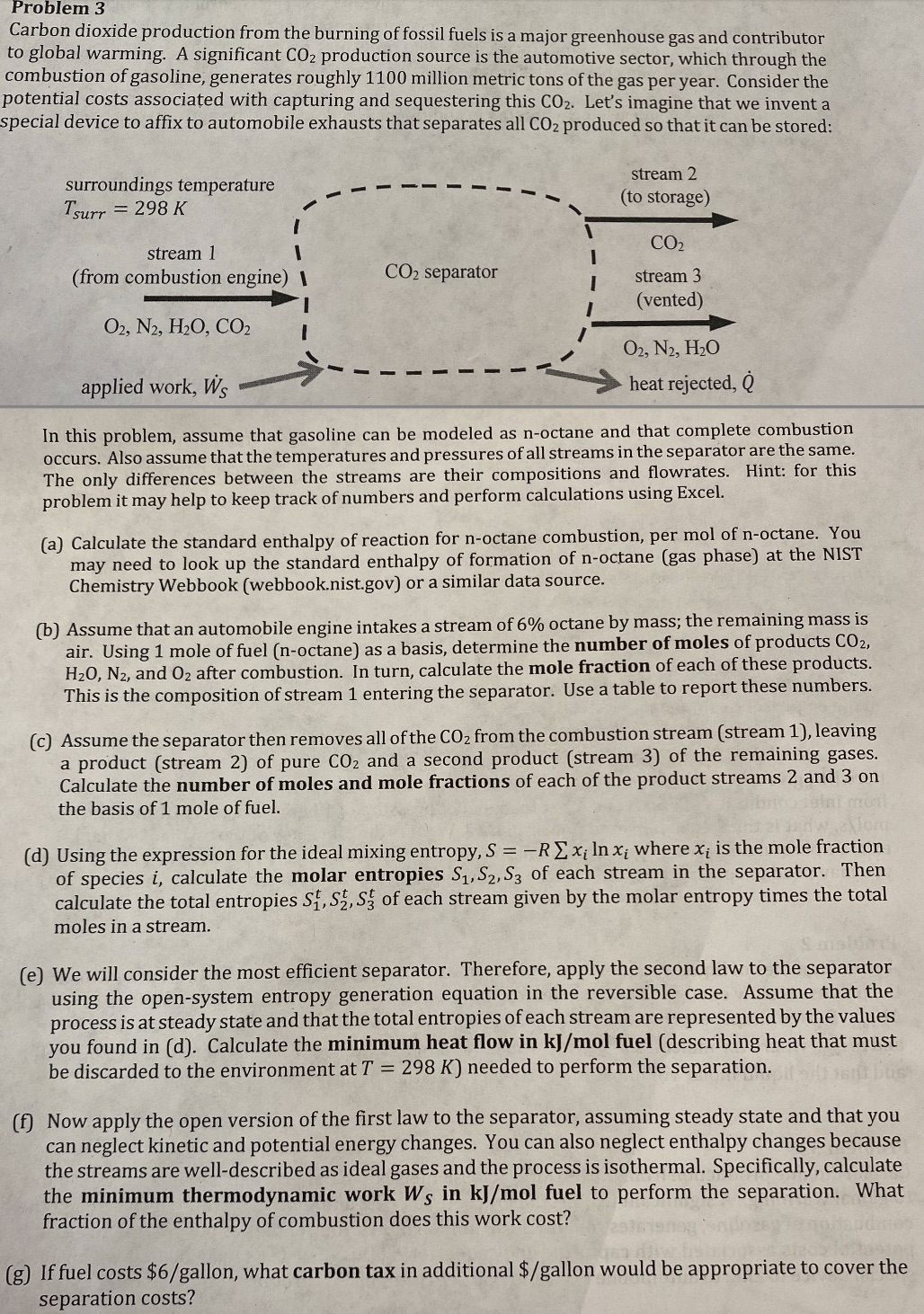Answered step by step
Verified Expert Solution
Question
1 Approved Answer
Problem 3 Carbon dioxide production from the burning of fossil fuels is a major greenhouse gas and contributor to global warming. A significant C O
Problem
Carbon dioxide production from the burning of fossil fuels is a major greenhouse gas and contributor
to global warming. A significant production source is the automotive sector, which through the
combustion of gasoline, generates roughly million metric tons of the gas per year. Consider the
potential costs associated with capturing and sequestering this Let's imagine that we invent a
special device to affix to automobile exhausts that separates all produced so that it can be stored:
In this problem, assume that gasoline can be modeled as noctane and that complete combustion
occurs. Also assume that the temperatures and pressures of all streams in the separator are the same.
The only differences between the streams are their compositions and flowrates. Hint: for this
problem it may help to keep track of numbers and perform calculations using Excel.
a Calculate the standard enthalpy of reaction for noctane combustion, per mol of noctane. You
may need to look up the standard enthalpy of formation of noctane gas phase at the NIST
Chemistry Webbook
webbook.nist.gov or a similar data source.
b Assume that an automobile engine intakes a stream of octane by mass; the remaining mass is
air. Using mole of fuel noctane as a basis, determine the number of moles of products
and after combustion. In turn, calculate the mole fraction of each of these products.
This is the composition of stream entering the separator. Use a table to report these numbers.
c Assume the separator then removes all of the from the combustion stream stream leaving
a product stream of pure and a second product stream of the remaining gases.
Calculate the number of moles and mole fractions of each of the product streams and on
the basis of mole of fuel.
d Using the expression for the ideal mixing entropy, where is the mole fraction
of species calculate the molar entropies of each stream in the separator. Then
calculate the total entropies of each stream given by the molar entropy times the total
moles in a stream.
e We will consider the most efficient separator. Therefore, apply the second law to the separator
using the opensystem entropy generation equation in the reversible case. Assume that the
process is at steady state and that the total entropies of each stream are represented by the values
you found in d Calculate the minimum heat flow in fuel describing heat that must
be discarded to the environment at needed to perform the separation.
f Now apply the open version of the first law to the separator, assuming steady state and that you
can neglect kinetic and potential energy changes. You can also neglect enthalpy changes because
the streams are welldescribed as ideal gases and the process is isothermal. Specifically, calculate
the minimum thermodynamic work in fuel to perform the separation. What
fraction of the enthalpy of combustion does this work cost?
g If fuel costs $ gallon, what carbon tax in additional $gallon would be appropriate to cover the
separation costs?

Step by Step Solution
There are 3 Steps involved in it
Step: 1

Get Instant Access to Expert-Tailored Solutions
See step-by-step solutions with expert insights and AI powered tools for academic success
Step: 2

Step: 3

Ace Your Homework with AI
Get the answers you need in no time with our AI-driven, step-by-step assistance
Get Started


